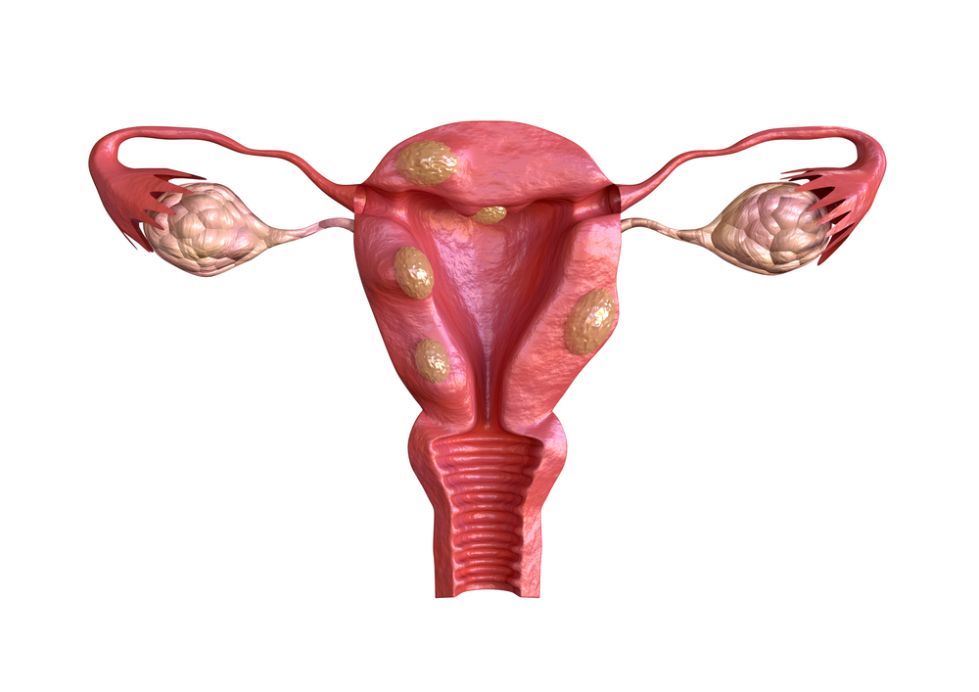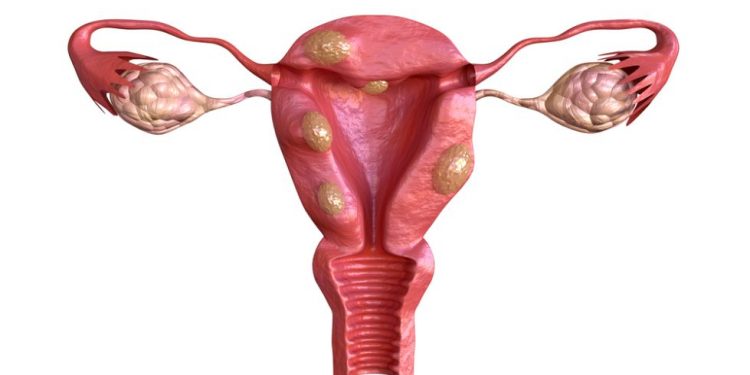Uterine cancer is the name for two types of cancer that can grow in a woman’s uterus (womb). One type, called endometrial cancer, starts in cells that line the uterus. The other, called uterine sarcoma, starts in muscles or other tissues in the uterus.
The outlook for uterine cancer depends on how far the cancer has spread when it is diagnosed and how quickly it is treated. Most women who have uterine cancer in the early stages are cured, especially when it is caught before it spreads.
A doctor can diagnose uterine cancer by doing an exam and asking about your past health. Your doctor may order a blood test or an imaging test to find out how far the cancer has spread. The most common test to diagnose uterine cancer is an ultrasound scan. Your doctor may also want to do a biopsy of the cancer. To do a biopsy, your doctor will remove a small piece of tissue from the lining of the uterus and test it for cancer cells.
Most uterine cancers start in the cells that line the uterus, called endometrium. Women who have this cancer often have pain, heavy bleeding and abnormal vaginal discharge. In some cases, the cancer cells can break off and spread to other parts of the body. This is called metastatic uterine cancer.

If the cancer is in the early stage, surgery may cure it. However, if it is in the later stages, it may be harder to treat and may be more likely to come back. In addition to surgery, doctors may use radiation therapy or chemotherapy to kill cancer cells and reduce the chance of them coming back. Radiation therapy uses high-energy rays, like X-rays, to destroy cancer cells. For uterine cancer, this can be given through a machine that directs the radiation to the uterus or by inserting a small cylinder in your pelvic area and leaving it there for a few days.
Some factors may increase your chances of getting uterine cancer, including age, having had previous pelvic radiation for another medical condition, being overweight and taking estrogen-only hormone replacement therapy or tamoxifen for breast cancer. You have a greater risk of uterine cancer if a close blood relative has had the disease or if you’ve had other gynecologic problems such as endometriosis.
Most treatments for uterine cancer affect your ability to have children. If you want to have children, talk to your healthcare provider about this before treatment starts. It is important to continue to see your doctor regularly so that any new symptoms can be detected and treated right away. They will also keep track of your cancer so that it can be treated as soon as possible if needed.









